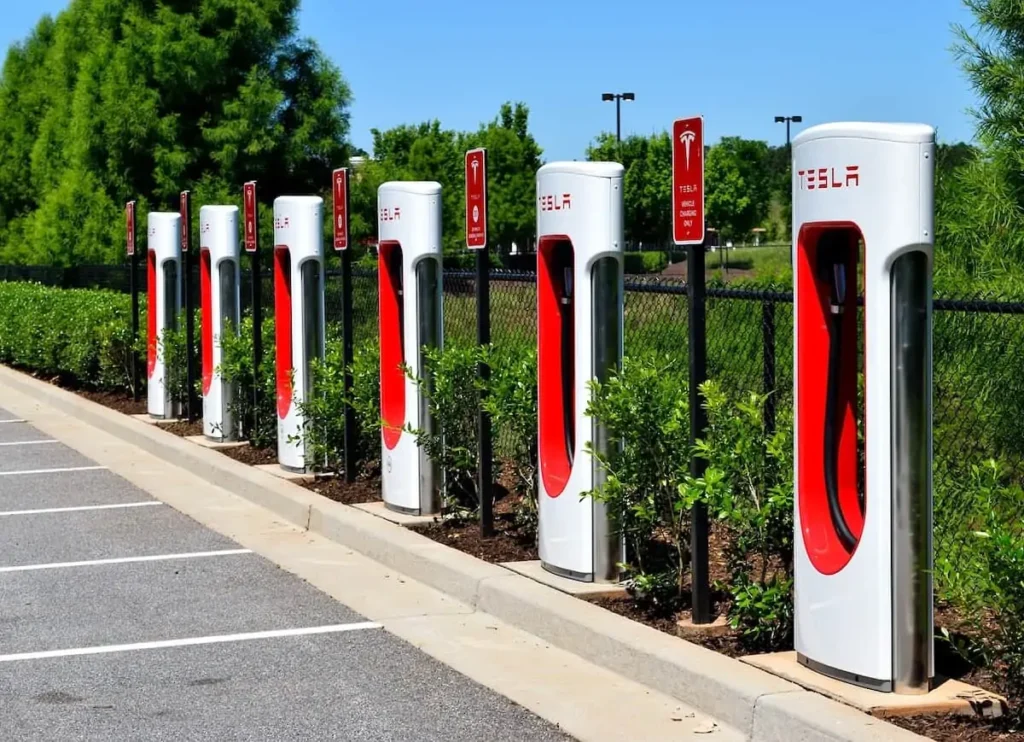
Audience
- Sentiment: Neutral
- Political Group: Republican
- Age Group: 25-45
- Gender: Male
Overview
- The Trump administration has halted federal funding for electric vehicle charging infrastructure, impacting the planned expansion under Biden’s Bipartisan Infrastructure Law.
- The article discusses differing perspectives on whether the government or private sector should fund EV charging stations.
- Experts warn that delaying EV charger rollout could slow the transition to electric vehicles and hinder climate change efforts.
The Electric Vehicle Charging Debate: What’s Really Going On?
Have you ever thought about how our world is changing when it comes to cars? The shift towards electric vehicles (EVs) has been one of the major changes in the last decade. Imagine riding in a car that doesn’t produce harmful emissions, reduces air pollution, and relies on electricity instead of gasoline. Sounds like a dream, right? Well, this dream was becoming a reality until recently when some political decisions started to shake things up.
In October 2023, the Trump administration made headlines by announcing a directive to stop federal funding for electric vehicle charging infrastructure. This decision is tied to President Biden’s Bipartisan Infrastructure Law, which was supposed to help build a network of chargers across the country to support the growing number of electric vehicles on our roads. Let’s dive into what this means for the future of transportation in the U.S. and why it’s getting so much attention.
The Background: What’s at Stake?
First, let’s understand what electric vehicles are and why they matter. Electric vehicles don’t use traditional gasoline engines; instead, they rely on electric batteries to power the motor. This means they don’t emit harmful gases like CO2, which are known to contribute to climate change. As more people become aware of environmental issues, the demand for electric vehicles has increased. This demand is leading car manufacturers to produce more electric models, which is exciting!
However, for many people considering switching to electric, one significant concern remains: charging. Just like you wouldn’t buy a cellphone without knowing you could charge it, people are hesitant to invest in EVs without a robust charging infrastructure that ensures they can easily recharge their cars. This is where the federal funding for EV charging stations comes in.
The Bipartisan Infrastructure Law, signed by President Biden, aimed to allocate a substantial amount of money—around $7.5 billion—specifically for building EV chargers. The objective was to make charging reliable and convenient across the country. But Trump’s recent memo halting this funding has thrown a wrench into these plans.
Trump’s Perspective
So, why did Trump decide to cut this funding? His administration has labeled the expenditure on EV chargers as wasteful, arguing that the private sector should handle these developments instead. He believes that government funding for such projects is an unnecessary use of taxpayer dollars.
Some may agree with this viewpoint, arguing that the free market should dictate the rollout of charging stations. If people want electric vehicles and are willing to pay for charging stations, then businesses will naturally respond to that demand. This perspective highlights an important ideological divide in how different groups view the role of government in supporting technology and infrastructure.
Industry Voices: Not All Hope is Lost
While Trump’s directive raises concerns, many industry leaders believe that consumer demand for electric vehicles will continue to drive the expansion of charging infrastructure. Companies like Tesla have already established a robust network of Supercharger stations. This means that even if the federal government pulls funding, businesses that see the potential in electric vehicles will likely step up to fill the gap.
Tesla has created a massive network of charging stations across the nation, so much so that the company could operate independently of federal support. This situation showcases the innovation and adaptability within the tech and auto industries. Still, it raises questions about fairness. What happens to those living in areas where companies like Tesla don’t see it as profitable to build charging stations?
The Ripple Effect on the Auto Industry
One of the biggest warnings from experts is that delaying the rollout of EV chargers could hinder the broader transition to electric vehicles. For many people, the fear of not having enough chargers is what keeps them from buying an EV. If potential buyers think they may be stuck without a place to charge, they might decide to stick with traditional gasoline cars. This creates a cycle that could slow down the transition to cleaner energy.
In addition, the U.S. auto industry has invested significant resources into developing electric vehicles. If consumers aren’t fully onboard due to charging concerns, those investments could go to waste, hurting both manufacturers and the environment. It’s a complicated balance of meeting consumer demands while also working toward a sustainable future.
State Responses and Legal Challenges
In response to Trump’s directive, many states may not be willing to sit back and do nothing. There have already been discussions about legal challenges that could arise from states wanting to continue their projects. The halt of funding could be seen as a roadblock that some states will try to navigate around.
Experts believe states may push for existing projects to continue until there is clearer guidance from the federal government. They recognize the urgency of expanding the EV infrastructure and the potential economic benefits it could bring in terms of jobs and technological leadership in this field.
What Happens Next?
The future of charging infrastructure is uncertain. Will states be able to find alternative funding? Which companies will step up to create new charging stations? And more importantly, how will this affect the average person wanting to switch to an electric vehicle?
Many observers believe the true impact may not be felt immediately but could become more pronounced as electric vehicle adoption continues to grow. If the development of charging stations doesn’t keep pace with electric vehicle sales, it could lead to frustration and reduced consumer confidence in electric cars, ultimately making it harder to achieve emissions reduction goals.
The Bigger Picture: Climate Change and Sustainability
This debate isn’t just about cars or charging stations; it is a reflection of a larger conversation about climate change and our responsibility to the planet. If we want to move towards a sustainable future, expanding electric vehicle infrastructure is crucial. It’s not just about convenience for consumers; it’s about reducing our carbon footprint and ensuring cleaner air for future generations.
As consumers, our choices can significantly impact the direction of the industry. If there are more EVs on the road, the demand for charging stations will increase, driving investment from car manufacturers and charging companies alike. But if that momentum stalls, it could set us back in our efforts to combat climate change.
Engaging with the Future
The decision regarding EV charger funding is just one piece of a much larger puzzle, but it has sparked important conversations about responsibility, innovation, and sustainability. It’s crucial to understand how government policies can shape our futures and the role that consumers play in affecting change.
As a reader, what are your thoughts on the current situation with electric vehicle infrastructure? Do you think government funding is necessary to support the growth of electric vehicles, or should it be left to businesses? Share your ideas in the comments below!






